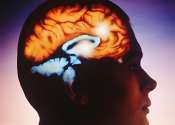Researchers unveil vital role of astrocytes in mental health
Astrocytes, as vital cells in the central nervous system, are crucial for brain health and function. Recent research shows that they influence higher cognitive functions and behaviors by regulating local neuronal activity.
Apr 22, 2024
0
43









